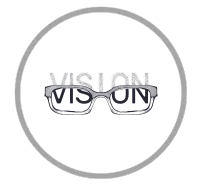Kleinwood Vision
Expert Diagnosis at Our Macular Degeneration Clinic
FSDAVCFEBFEVSDDVFSD
FSDAVCFEBFEVSDDVFSD
FSDAVCFEBFEVSDDVFSD
Macular Degeneration: What is Best for Post-Diagnosis Care
At Kleinwood Vision in Houston, we offer expert diagnosis and care for macular degeneration (AMD), prioritizing early detection and personalized treatment plans. Our state-of-the-art clinic is equipped with advanced imaging technologies, including Optical Coherence Tomography (OCT), a crucial tool for diagnosing AMD. OCT allows us to capture detailed cross-sectional images of the retina, helping us accurately monitor changes that may signal the presence or progression of macular degeneration.
This non-invasive imaging method is highly effective at showing minute details of the retina, which is vital for distinguishing between the two forms of AMD: dry and wet. By analyzing the retinal layers, OCT can identify drusen, tiny lipid deposits that often indicate early-stage AMD. For more complex cases, such as wet AMD, OCT helps detect abnormal blood vessels beneath the retina, which can leak and lead to significant vision loss if left
untreated.
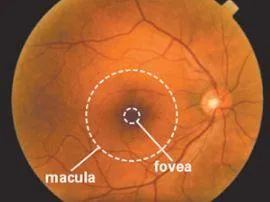
At Kleinwood Vision in Houston, we offer expert diagnosis and care for macular degeneration (AMD), prioritizing early detection and personalized treatment plans. Our state-of-the-art clinic is equipped with advanced imaging technologies, including Optical Coherence Tomography (OCT), a crucial tool for diagnosing AMD. OCT allows us to capture detailed cross-sectional images of the retina, helping us accurately monitor changes that may signal the presence or progression of macular degeneration.

Our specialists at Kleinwood Vision use OCT, along with other diagnostic tools, to provide comprehensive evaluations and ensure an accurate diagnosis. This combination of imaging and in-depth eye health assessments sets the foundation for creating personalized care plans that address each patient’s specific needs and condition.
This non-invasive imaging method is highly effective at showing minute details of the retina, which is vital for distinguishing between the two forms of AMD: dry and wet. By analyzing the retinal layers, OCT can
identify drusen, tiny lipid deposits that often indicate early-stage AMD. For more complex cases, such as wet AMD, OCT helps detect abnormal blood vessels beneath the retina, which can leak and lead to significant vision loss if left untreated.
Our specialists at Kleinwood Vision use OCT, along with other diagnostic tools, to provide comprehensive evaluations and ensure an accurate diagnosis. This combination of imaging and in-depth eye health assessments sets the foundation for creating personalized care plans that address each patient’s specific needs and condition.
Personalized Treatment Plans for Macular Degeneration
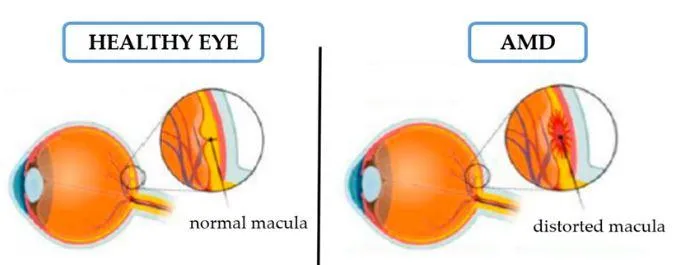
At our clinic, we focus on providing personalized treatment plans for managing macular degeneration, ensuring that each patient receives care tailored to their specific type of AMD. Our specialists utilize advanced therapies designed to slow disease progression and preserve vision.
For patients with wet AMD, anti-vascular endothelial growth factor (anti-VEGF) therapy is a primary treatment approach. This therapy involves the injection of medications like ranibizumab and aflibercept, which help prevent the growth of abnormal blood vessels under the retina, a hallmark of the wet form of macular degeneration.
At our clinic, we focus on providing personalized treatment plans for managing macular degeneration, ensuring that each patient receives care tailored to their specific type of AMD. Our specialists utilize advanced therapies designed to slow disease progression and preserve vision.
For patients with wet AMD, anti-vascular endothelial growth factor (anti-VEGF) therapy is a primary treatment approach. This therapy involves the injection of medications like ranibizumab and aflibercept, which help prevent the growth of abnormal blood vessels under the retina, a hallmark of the wet form of macular degeneration.

Anti-VEGF treatments have shown significant success in stabilizing vision, and in some cases, even improving visual acuity. These treatments are customized based on the patient's response to initial doses, with ongoing monitoring to assess their condition and adjust therapy as necessary.
For dry AMD, which involves the gradual thinning of the macula, nutritional supplements are often recommended to help slow progression. Formulations like AREDS and AREDS2, containing a combination of vitamins C and E, zinc, copper, lutein, and zeaxanthin, are prescribed based on evidence suggesting they can reduce the risk of advancing to more severe stages, particularly in high-risk patients.
Our clinic combines these medical treatments with ongoing care, including regular follow-ups to monitor vision changes and adjust treatment plans as needed. Each treatment strategy is informed by the latest research to provide the most effective care for maintaining vision and
improving quality of life.
Frequently Asked Questions
Frequently Asked Questions
What is macular degeneration?
Macular degeneration is a progressive eye disease that affects the macula, the central part of the retina responsible for sharp, central vision. It is most common in older adults and can lead to vision loss, though it typically does not cause complete blindness.
What are the types of macular degeneration?t?
There are two main types of macular degeneration: dry and wet. Dry macular degeneration is the most common and involves the gradual thinning of the macula. Wet macular degeneration is less common but more severe, involving the growth of abnormal blood vessels beneath the retina that can leak fluid and cause rapid vision loss.
How is macular degeneration diagnosed?
Macular degeneration is diagnosed through a comprehensive eye exam that includes tests such as Optical Coherence Tomography (OCT) and a dilated eye exam. These diagnostic tools help detect early signs of the disease, including drusen and abnormal blood vessel growth.
What treatment options are available for macular degeneration?
Treatment options vary depending on the type and stage of macular degeneration. For wet AMD, anti-VEGF injections are commonly used to stop the growth of abnormal blood vessels. For dry AMD, nutritional supplements like the AREDS formula may help slow progression. Photodynamic therapy (PDT) and other emerging treatments are also available for wet AMD.
Can lifestyle changes impact macular degeneration?
Yes, lifestyle changes such as eating a healthy diet rich in antioxidants, maintaining a healthy weight, not smoking, and protecting your eyes from UV light can help manage macular degeneration and may slow its progression.
What is the importance of regular monitoring for AMD?
Regular monitoring is crucial for tracking the progression of macular degeneration, adjusting treatments as necessary, and detecting any changes in vision early. Early intervention can help slow vision loss and maintain quality of life.
Are there any new treatments for AMD on the horizon?
Yes, new treatments such as gene therapy and optogenetic therapy are being researched and show promise in potentially restoring vision. These therapies aim to treat the underlying causes of AMD by modifying genetic material or enhancing retinal cells.
What should I ask my doctor during a visit for AMD?
Patients should ask about the stage of their condition, treatment options, potential side effects, the effectiveness of treatments, and any lifestyle changes that may help manage the disease.
How often should someone with AMD visit their doctor?
The frequency of visits depends on the stage and type of AMD. Generally, patients with wet AMD may need to visit more frequently for injections or treatments, while those with dry AMD may have less frequent checkups. Your doctor will determine the best schedule for follow-up visits.
Can macular degeneration lead to complete blindness?
Macular degeneration typically does not cause complete blindness but can severely affect central vision. With proper treatment and care, most people with AMD retain peripheral vision, which helps them continue daily activities.
Ongoing Monitoring by Top Macular Degeneration Doctors
At Kleinwood Vision, we believe in continuous care throughout the macular degeneration journey. Our specialists offer regular follow up appointments to track the progression of the disease and adjust treatments when necessary. These visits, which are part of our
Comprehensive Eye Exams, are essential for ensuring the best outcomes over time, using advanced diagnostic tools such as
Optical Coherence Tomography (OCT) to assess the retina and monitor the effectiveness of treatments.
During follow-up visits, our doctors closely examine retinal
changes, ensuring that both wet and dry AMD cases are properly managed. This proactive approach helps to adapt treatment plans based on the progression of the disease, ensuring that the care provided is as effective as possible and tailored to each patient's needs.
In addition to medical monitoring, we offer visual rehabilitation services and provide access to low vision rehabilitation. These tools are designed to help patients make the most of their remaining vision and maintain independence. By incorporating devices that enhance contrast or magnify objects, patients can significantly improve their quality of life despite vision impairments caused by macular degeneration.
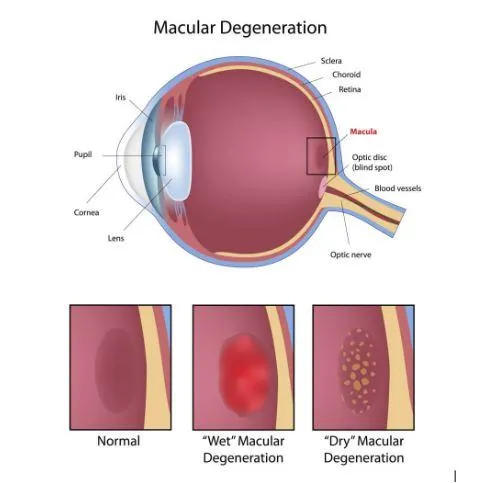
At Kleinwood Vision, we believe in continuous care throughout the macular degeneration journey. Our specialists offer regular follow-up appointments to track the progression of the disease and adjust treatments when
necessary. These visits, which are part of our
Comprehensive Eye Exams, are essential for ensuring the best outcomes over time, using advanced diagnostic tools such as Optical Coherence Tomography (OCT) to assess the retina and monitor the effectiveness of treatments.

At our clinic, we also empower patients with education about monitoring their vision at home. By teaching them to use tools like the Amsler grid, we help patients identify early changes in their vision, ensuring they can seek timely intervention. This comprehensive approach not only provides expert care but also enables patients to actively manage their condition with
informed guidance.
During follow-up visits, our doctors closely examine retinal changes, ensuring that both wet and dry AMD cases are properly managed. This proactive approach helps to adapt treatment plans based on the progression of the disease, ensuring that the care provided is as effective as possible and tailored to each patient's needs.
In addition to medical monitoring, we offer visual rehabilitation services and provide access to low vision rehabilitation. These tools are designed to help patients make the most of their remaining vision and maintain independence. By incorporating devices that enhance contrast or magnify objects, patients can significantly improve their quality of life despite vision impairments caused by macular degeneration.
At our clinic, we also empower patients with education about monitoring their vision at home. By teaching them to use tools like the Amsler grid, we help patients identify early changes in their vision, ensuring they can seek timely intervention. This comprehensive approach not only provides expert care but also enables patients to actively manage their condition with informed guidance.
Advanced Therapies and Emerging Treatments
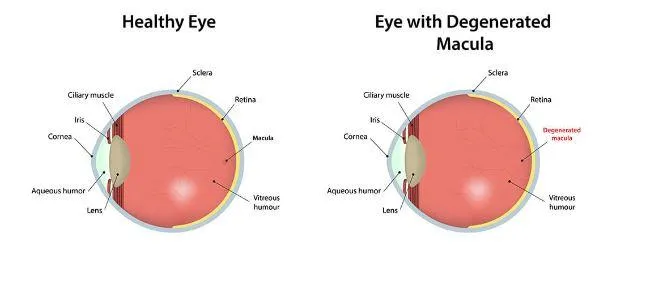
We are committed to offering the latest advancements in macular degeneration care. Alongside established treatments like photodynamic therapy (PDT) for wet AMD, we are actively exploring emerging therapies that may soon transform how we manage the condition.
Photodynamic Therapy (PDT): This treatment is particularly effective for wet AMD, where a light-sensitive drug, Visudyne, is injected into the eye and activated with a laser. This targeted approach helps seal off leaking blood vessels beneath the retina, preserving vision while minimizing damage to surrounding healthy tissue.
We are committed to offering the latest advancements in macular degeneration care. Alongside established treatments like photodynamic therapy (PDT) for wet AMD, we are actively exploring emerging therapies that may soon transform how we manage the condition.
Photodynamic Therapy (PDT): This treatment is particularly effective for wet AMD, where a light-sensitive drug, Visudyne, is injected into the eye and activated with a laser. This targeted approach helps seal off leaking blood vessels beneath the retina, preserving vision while minimizing damage to surrounding healthy tissue.

Anti-VEGF Therapy: As the cornerstone of wet AMD treatment, anti-VEGF therapy involves injections that inhibit the growth of abnormal blood vessels under the retina. The latest medications in this category, such as brolucizumab (Beovu) and faricimab-svoa (Vabysmo), improve treatment efficacy and extend the duration between injections, effectively managing disease progression with fewer treatments.
We also stay informed on cutting-edge developments in gene therapy and optogenetic treatments, which aim to address the root causes of AMD and potentially restore lost vision. These emerging therapies are currently undergoing clinical trials, and our clinic is at the forefront of integrating the latest research into patient care, offering hope for more durable treatments in the future. If you’re interested in learning more about these innovative options or exploring what treatment path is right for you, please Contact Us to schedule a consultation.

Contact Info
Hours of Operation
Mon - Fri | 9:00 AM - 5:00 PM
Sat - Sun | Closed
Holiday Hours: We are closed for the following holidays: New Years Day, Memorial Day, Independence Day, Labor Day, Thanksgiving Day, Christmas Day
© 2026 Kleinwood Vision. All rights Reserved.

